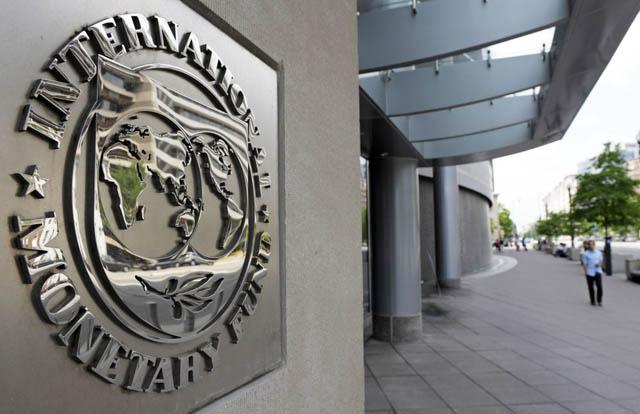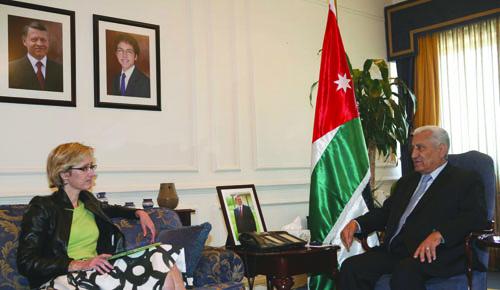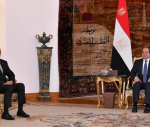You are here
IMF expected to finalise $264m payment to Jordan
Apr 05,2014 - Last updated at Apr 05,2014

AMMAN – The International Monetary Fund’s (IMF) executive board is expected to approve the disbursement of $264 million to Jordan late this month under a Stand-By Arrangement (SBA), according to a statement issued by the organisation Friday.
The disbursement of the funds will be for the combined fourth and fifth tranches under the 36-month SBA worth $2 billion, or 800 per cent of Jordan’s quota at the IMF that was approved by the IMF’s executive board on August 3, 2012.
Jordan has so far received around $1.043 billion under the agreement to support the Kingdom’s economic reform programme.
The IMF statement was issued after its mission led by Kristina Kostial held discussions with officials in Amman between March 4 and 19 for the 2014 Article IV consultation and the third and fourth reviews of Jordan’s economic programme supported by the SBA.
Kostial said in the statement Jordan has had to grapple with strong headwinds in recent years such as the Syrian crisis, which caused major macroeconomic implications, and disruptions of energy imports from Egypt that put further pressure on Jordan’s external and fiscal accounts.
“Building on the good performance in 2013-14, we reached a staff-level agreement on the third and fourth reviews under the SBA, subject to the approval of the Executive Board… Board approval will allow for the disbursement of about $264 million for the combined fourth and fifth tranches,” she said.
The IMF official said growth increased to about 3 per cent in 2013, with more robust activity in the financial services, telecommunication, trade and construction sectors. Year-on-year inflation dropped to just above 3 per cent. The current account deficit is estimated to have improved by over 5 per cent of the gross domestic product, to less than 10 per cent of GDP, helped by lower energy imports, higher transfers and private receipts.
During 2013, authorities continued to reduce external and fiscal vulnerabilities. The appropriate monetary stance, improvement in the current account, along with the confidence-driven deposit de-dollarisation and the issuance of two US dollar-denominated domestic bonds and a US-guaranteed Eurobond, allowed the Central Bank of Jordan (CBJ) to rebuild its international reserves to a comfortable level (over five months of prospective imports as of end 2013), the statement noted.
The IMF said that Jordan’s economy is expected to expand by 3.5 per cent in 2014, and to 4.5 per cent in the medium term.
Inflation, according to the IMF, is expected to decline to about 2.5 per cent at end 2014, and 2 per cent in the medium term. The current account deficit (including grants) would gradually improve to about 4.5 per cent of GDP over the medium term, mostly reflecting a lower energy import bill.
However, the statement warned that risks to this outlook remain high, mostly related to the Syrian conflict and further disruptions in energy imports.
The international financial organisation urged authorities to continue to protect external stability and reduce vulnerabilities while improving Jordan’s labour market and social outcomes.
While fiscal consolidation needs to continue, the focus should remain on achieving an equitable distribution of the burden of adjustment and protecting the most vulnerable segments of the population, the statement said.
As benefits of low utility prices and low effective income tax rates have accrued disproportionately to the well off, it added, utility and tax reforms are essential to a balanced consolidation effort.
Related Articles
A team from the International Monetary Fund (IMF) led by mission chief Kristina Kostial is due to carry out a review of economic reforms in Amman Sunday.
The International Monetary Fund (IMF) mission to Jordan has completed its sixth review under the Stand-By Arrangement (SBA), which is expected to allow the Kingdom to receive $200 million in the coming weeks.
Prime Minister Abdullah Ensour on Thursday met with International Monetary Fund (IMF) Mission Chief for Jordan Kristina Kostial and an accompanying delegation over the Kingdom's economic correction programme overseen by the fund, the Jordan News Agency, Petra, reported.
















